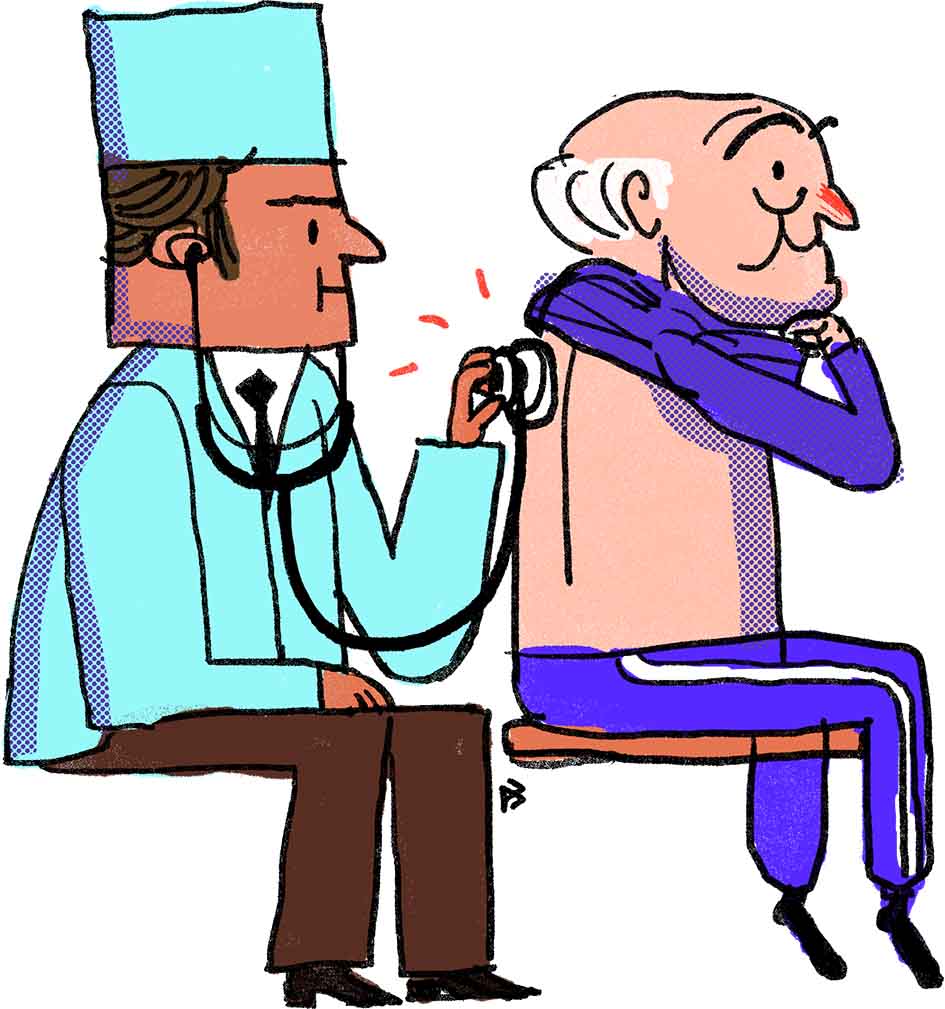Screenings, Vaccinations and Disease Prevention for Older People: the Most Important Instructions
"Health of the Older People: How to Help and Care"
Screenings, Vaccinations and Disease Prevention
for Older People: the Most Important Instructions
February 5th, 2020
Not everyone can boast of such an attentive attitude to their health. Therefore, we decided to create a kind of guidebook dedicated to the issues that are important when it comes to the health of older people. Attention to the health of loved ones is a great help that the elderly need.
Age and Immunity
That is why geriatricians - doctors specializing in the treatment of the elderlies - pay special attention to the need for immunization of older people, even despite the vaccinations that were given earlier and the infectious diseases faced before.
STATISTICS
UN experts classify Kazakhstan as a country with accelerated rates of aging and predict that by 2050 the number of elderly people in Kazakhstan will increase up to 2,5 times.
Vaccination Schedule for the Elderlies
Seasonal flu is a leading cause of death from a disease that could have been prevented by vaccination. Every year, one billion people become infected with the flu, 500 million of them die from its complicated form. That is why the flu vaccination is recommended for people of 65 and older. Vaccinating the elderlies against flu reduces mortality level by up to 50% - this is the most effective way to prevent the flu and its complications.
Important to know:
A flu vaccination should be taken every year (fall season): firstly, its effectiveness is gradually weakening, and secondly, the composition of the vaccine changes annually in accordance with influenza viruses, which are projected to be dangerous.
Sometimes people become infected with the flu, even if they have been vaccinated, but in this case, the disease proceeds in a light form.
Pneumococcus is a common bacterium that causes pneumonia, meningitis, and blood poisoning (bacteremia, sepsis). People aged 65 and over are at increased risk of suffering from these diseases.
Important to know:
Vaccination is also important because some types of pneumococcus are resistant to antibiotics.
Pneumococcal diseases caused by the bacterium Streptococcus Pneumoniae. Anyone can get pneumonia, but in a high-risk area - children under two years and adults over 65, as well as those with diabetes, chronic respiratory diseases, weak cardiovascular system, and who have low immunity, plus smokers and alcohol addicted people.
For elderlies, pneumonia usually develops in conditions of anatomically altered lung tissue, impaired ventilation and perfusion, that is, with age, the strength of the contraction of the respiratory muscles and the elasticity of the lung tissue decreases. Plus, pneumonia in older people often proceeds against a background of concomitant diseases. Moreover, pneumonia has a poor clinical picture - it is difficult to diagnose it in a timely manner, and this, in turn, complicates the treatment and worsens the prognosis of the disease.
STATISTICS
Among elderly patients with pneumonia and background heart diseases (with exacerbation of the latter), 8,5% of cases end in the intensive care units.
The most highly effective way to influence the incidence and mortality from pneumococcal infections is, of course, vaccination. According to WHO, immunization prevents from two to three million deaths of people of all ages from vaccine-preventable diseases. And vaccination of the elderly is one of the tools that helps to increase the life expectancy of patients and reduce mortality.
Tetanus is a bacterium that causes an infection with a great harm to the human nervous system. Vaccination against tetanus can neutralize the poison secreted by this bacterium. Almost all people affected by tetanus have either never been vaccinated with this disease or have not received booster vaccines in the last ten years. Therefore, it is recommended to be vaccinated against tetanus and diphtheria once every ten years (the vaccine contains immunity from tetanus and diphtheria).
Important to know:
Vaccination protects against these infections in almost 100% of cases.
— Analyzes before vaccination are necessary only according to the doctor's prescriptions (for example, those who have immunodeficiency associated, for example, with the treatment of cancer).
— It is strictly forbidden to make any vaccination if a person has a high temperature.
If an elderly person has chronic diseases, vaccinations in this case are not only contraindicated, but directly recommended.
Necessary Screening Examinations for Elderlies
Doctors assure that early diagnosis is the most effective way to fight the disease. Kazakhstani doctors have programs for the early diagnosis of dangerous diseases, including cancer.
Even if there are no symptoms, older people need to be tested for the following:
Head of SBS Med Clinic
But it is in our competence to prevent and stop the development and progress of these diseases.
First of all, we need to monitor your blood pressure, weight, sugar (glucose) level in blood and cholesterol.
Measuring these four indicators does not require much effort. Regular monitoring can help prevent serious health problems.
Two other important aspects are body weight and smoking.
It is proved that a decrease in body weight by an average of 5 kg reduces the level of systolic (upper) pressure by 4 mm Hg, and diastolic (lower) - by 3.6 mm Hg, respectively. Normalization of weight will not only help stabilize pressure, but also reduce joint pain – it will be easier to the body to "carry" itself.
We can talk endlessly about the dangers of smoking. I cannot stress it enough that you should give up smoking at all. And do not talk about the pleasure of smoking a cigarette, stress and so on. Smoking cigarettes increases the blood pressure, "spoils" blood vessels plus causes an unpleasant odor.


